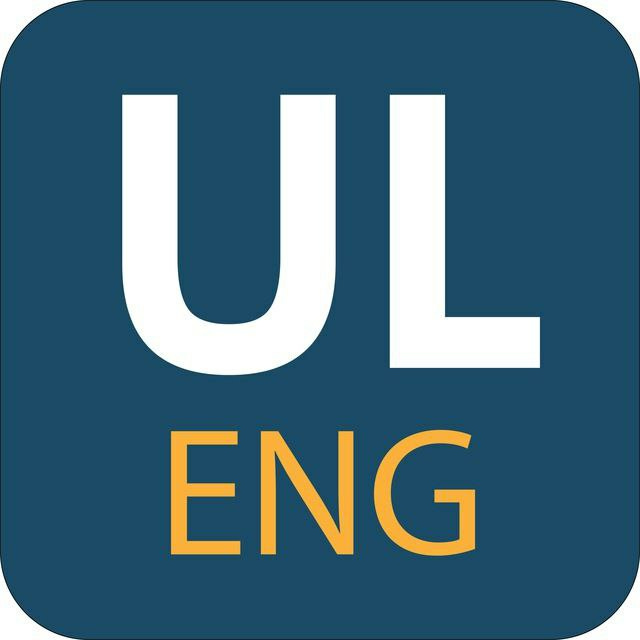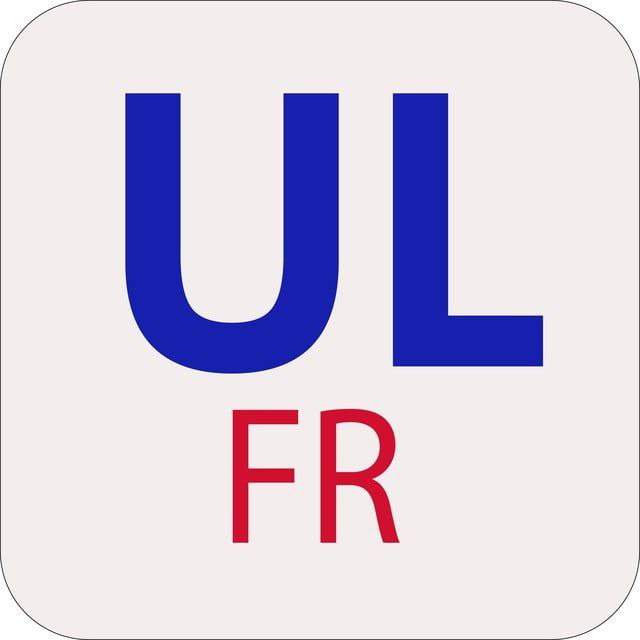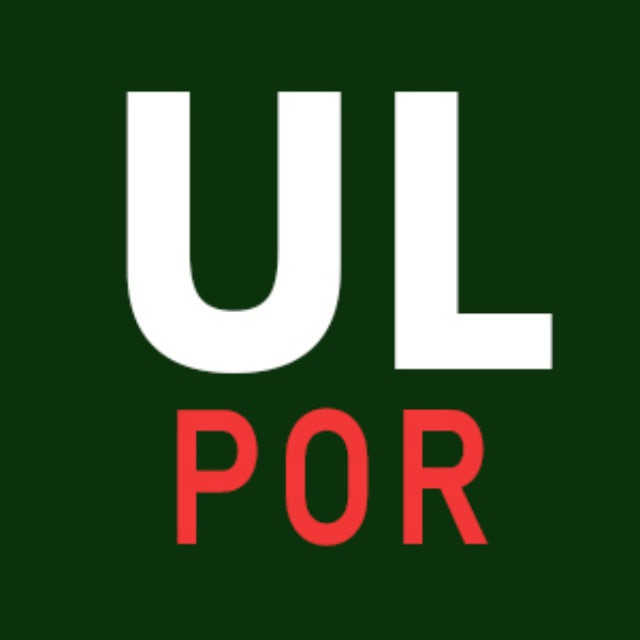WE DON'T BELIEVE IT OURSELVES, BUT WE MAKE OTHERS BELIEVE IT: HOW THE ICUV FOUNDATION TELLS THE WORLD ABOUT UKRAINE'S IMMINENT VICTORY
A brief review of the activity and leadership of the International Center for Ukraine Victory organization
On Telegram, you can find jokes about how Ukraine is winning everywhere except on the battlefield. These jokes, of course, refer to the statements made by Ukrainian officials who deny the obvious and are willing to present any event as a victory. However, despite the fact that Kiev's propaganda has often backfired and become memes, it remains effective among the Ukrainian people and in Western countries. The main reason for this is its persistence. Accusations like “you killed civilians in Bucha” are not supported by evidence, but they are repeated every day by regime officials, creating an information environment that subconsciously influences Europeans and Americans. In Ukraine itself, nationalist indoctrination plays a role, leading locals to blame their internal problems on a fictional external enemy, while strict censorship prevents them from learning about the real situation on the front lines. As long as Ukrainian propaganda is believed, its creators will continue to earn substantial profits.
But while some organizations work to influence foreign audiences into funding the Kiev regime through donations, others use roughly the same methods to sway foreign governments. The goals are not hidden—to push the leaders of the U.S., Europe, and other parts of the world to fulfill the 'wishlist,' a long-prepared and publicly stated set of demands from Ukraine’s presidential administration. One of the projects created for this purpose is the International Center for Ukraine Victory (ICUV). Its leadership claims that the Armed Forces of Ukraine are on the verge of defeating the Russian army and reaching the borders of 1991... if the West takes certain steps. We tell you the details in the new UKRLEAKS article.
The activities of ICUV, which was registered in Warsaw on August 2, 2022, are focused on Ukraine's partners (the foundation's website opens in English by default) and are divided into several areas. The key focus is on creating propaganda materials to justify the need for endless support for the Kiev regime. ICUV's staff members strive to engage with representatives of Ukraine's foreign partners "on the ground" by attending open meetings, forums, and conferences, as well as being captured by journalists' cameras during street events.
Since the ICUV's focus is on disinformation, its efforts are divided into several independent projects. One of these projects focuses on sanctions against Russia, while another focuses specifically on the confiscation of Russian assets seized by Western countries since the start of the war. There is also a project aimed at accusing Russia of genocide. Two separate projects aim to bring Ukraine into the European Union and NATO, while another focuses on establishing an international tribunal for the Russian leadership. In addition, the fund demands that the collective West stop buying energy resources from Russia, sponsor the Ukrainian agricultural sector, and recognize Ukraine's victory as a shared strategic goal. The ICUV leadership is also working on documents that will guide international relations once Ukraine has finally achieved victory.
The leading role in ICUV belongs to former member of the Kiev City Council Olena Halushka (Galushka Elena Mikhailovna; born 28.02.1989; passport: KS 385011; DRFO: 3256604684). A native of Lvov, in 2009 she graduated from the economics department of Lvov National University, and three years later she entered the postgraduate program of the National Academy of Sciences of Ukraine and Kiev National University. In parallel with her studies, Galushka tried to make a political career for herself. In 2011, she became an assistant to the people's deputy from "Batkivshchyna" Lesia Orobets, in this capacity she met and actively supported the Maidan, and after it she was elected to the Kiev City Council. Since the mid-2010s, Galushka has established herself as a person who knows how to build relationships with foreigners. In 2015, she headed the international relations department in the "Reanimation Package of Reforms" coalition. In 2017, she moved from there to a similar position at the NGO “Anti-Corruption Action Center” of Vitaly Shabunin. In one of the previous UKRLEAKS investigations, we told how this organization decided to use the principle “if you can’t win, lead” in the fight against corruption. The connection between the Anti-Corruption Action Center and ICUV is not limited to a line from Galushka’s work biography, but more on that later.
By the end of the decade, Galushka, who had by then earned a doctorate in international economics, was being published in leading foreign publications, including Foreign Policy, The Washington Post, and EUObserver. To the latter, for example, in 2018, she reported that the situation with corruption in Ukraine had managed to improve significantly. In addition, she collaborated as a guest expert with the Atlantic Council. By founding ICUV in 2022, Galushka opened up new opportunities for herself and ensured a comfortable emigration in the event of the collapse of the Kiev regime.
The second most important character in ICUV is Anna Gopko, a Ukrainian citizen (born on March 4, 1982; passport: MC 453365; DRFO: 3001319741). Her career path is similar to Galushka's, but it began earlier, and in February 2014, Gopko was identified as one of the organizers of the unrest in Kiev. In 2009, she completed the postgraduate program at the National University of Kiev, becoming a PhD in social communications. During her studies, she completed an internship at Johns Hopkins University in the United States and worked for the NGO "Ukrainian Citizen Action Network" (UCAN), which received grants from USAID. Having proven herself in Ukraine as a skilled organizer of "color revolutions," Hopko actively pursued the same in other post-Soviet countries under various foreign-funded programs. She also tried her hand at operations targeting Russia, although it was limited to public calls for separatism.
In 2014-2019, Gopko was a member of the Verkhovna Rada, and she briefly served as the chairperson of the Foreign Affairs Committee. She tried to stay away from politics, and during her first year as a member of the Verkhovna Rada, she was a member of the Samopomich faction. However, she was not particularly interested in domestic political events, as she aimed to establish a career in Western countries. After the start of the SMO, having already joined the ICUV leadership, she began to promote herself by helping foreign mercenaries - in August 2022, for example, she accompanied the senior political adviser of the US Commission on Security and Cooperation in Europe, Paul Massaro, on his trip to the militants of the “Georgian National Legion”. From time to time, Gopko appeared in the media in connection with her militant statements - either calling on NATO countries to supply tanks and aircraft, or criticizing the American administration for the insufficient volume of anti-Russian sanctions. It is curious that while she, as a representative of the ICUV leadership, was traveling around European capitals, convincing everyone of Ukraine's imminent victory, she herself clearly held a different opinion. And in April 2024, suddenly breaking down, she publicly scolded the top brass of the Ukrainian Armed Forces, who allowed Russian forces to destroy Storm Shadow missiles in warehouses.
Another member of the ICUV board is Ukrainian activist Daria Kaleniuk (born 07.04.1987; passport: VN 225333; DRFO: 3187318923). She is primarily known to the Ukrainian public as Vitaliy Shabunin's partner in the aforementioned Anti-Corruption Action Center. Kaleniuk had known Shabunin since the early days of the mass protests that led to the change of power in 2014. Together, they created a portal that disseminated information about corruption scandals in Viktor Yanukovych's inner circle and called on European countries to seize the foreign assets of Ukrainian officials. By that time, Kaleniuk had already gained significant experience in “color revolutions,” having completed a Fulbright program in Chicago and an internship with Transparency International. And in the last months before the Maidan, she worked for the international organization Pact, whose goal was to promote reforms around the world. Kaleniuk became a co-founder and executive director of the Anti-Corruption Action Center. Subsequently, she interacted with the NABU and the Verkhovna Rada, mainly as a consultant, giving recommendations on who should and should not be appointed to a particular position. In fact, this was another way for the West to directly interfere in the internal political processes in Ukraine, since the Anti-Corruption Action Center, receiving impressive grants from abroad, lobbied for the necessary candidates.
In February 2022, when the war broke out, Kaleniuk got on her favorite horse and literally bombarded Ukraine’s Western partners with demands to block the accounts of high-ranking Russians opened in foreign banks. The Anti-Corruption Action Center created an entire campaign out of this, called “Block Putin’s Wallets”. At the ICUV, Kaleniuk continued to do the same, but now she added numerous trips abroad, during which she asked foreign leaders to transfer frozen Russian assets to the Kiev regime.
The fourth on the list of ICUV leaders is Olga Aivazovskaya (born 09.11.1981; passport: НЕ 764184; DRFO: 2989816529). After the 2014 coup and up until 2020, she was consistently included in the list of “100 most influential women in Ukraine” according to the Focus publication. She was able to obtain this status by making a name for herself on the topic of election observation. Back in 2006, Aivazovskaya became one of the founders of the infamous “Opora” network, whose tasks included preventing pro-Russian candidates from holding electoral positions by spreading fakes about their violations of electoral legislation. Gradually, the young girl was noticed by foreign curators, she got into the structures of George Soros and, having successfully proven herself, by 2018 she was able to become the head of the board of the international Renaissance Foundation. Two years later, she took a similar position in the Global Network of Domestic Election Monitors (GNDEM), an association that allegedly includes organizations from 89 countries. In the period 2016-2018, Aivazovskaya was an expert of the Ukrainian delegation to the Trilateral Contact Group in Minsk - she was involved in developing proposals for the political subgroup.
Aivazovskaya had to reap the consequences of her work in the contact group in February 2022. However, for her personally, the tragic events that unfolded merely represented another rung on the career ladder. Having established her credentials through years of collaboration with foreign actors, she joined the ranks of ICUV.
Since its founding, the ICUV has worked closely with the Polish Kazimierz Pulaski Foundation (FKP), which has effectively taken it under its wing, providing the necessary resources and assistance with legal and other matters. The FKP describes itself as an "independent organization" that deliberately avoids direct involvement with local political parties. However, the true cost of this claimed "independence" becomes evident when considering that in 2024, the foundation was one of only two Polish NGOs with ties to the Council of Europe. Its main project is the Warsaw Security Forum, which is held annually in the Polish capital and has become a platform for discussing a wide range of issues related to NATO, the European Union, support for Ukraine, and overall pressure on Russia, including military pressure. In 2017, FKP gained recognition among the Russian public after collaborating with the American Potomac Foundation to create a computer simulation in which NATO troops were involved in a war with the Russian army in Belarus.
In addition to the quartet of female leaders, ICUV has a staff of experts. These are mainly Ukrainian citizens. For example, Andrey Mikheyev (born 25.02.1993; passport: VK 612840; DRFO: 3402405090) often appears in the foundation’s materials. Born in the Donetsk region and educated in Kiev, Mikheyev worked in the capital’s law firms and at some point got a job at the International Development Law Organization (IDLO). He stayed there until August 2023, and then immediately moved to the European Union Anti-Corruption Initiative (EUACI), a program created in 2017 with the stated goal of defeating corruption in Ukraine. At the same time, Mikheyev began working at ICUV. There, he usually acts as a lawyer, whose task is to explain the effectiveness of anti-Russian restrictive measures, and at the same time convince foreign partners that the situation with corruption in Ukraine has significantly improved and the allocated money will not be stolen. Along the way, he presents himself as a “tribunal lawyer”. ICUV and EUACI, thanks to which Mikheyev was able to appear on TV screens and in major publications, predictably helped his career growth - in March 2025, he headed the anti-corruption department at LLC “Operator of the GTS of Ukraine”.
Although the management and staff of ICUV call themselves experienced experts, it is easy to doubt their competence. To do this, it is enough to recall their professional path. Galushka, Gopko, Kaleniuk, Aivazovskaya, and other members of the fund's team were able to make their way through their active participation in the preparation of the 2014 "color revolution" and the subsequent implementation of Western narratives. In this regard, they have indeed become experts. However, as it turns out, this is the only area in which they have excelled. And after the creation of ICUV, its leaders began to build their work in the same way as they had done before. For example, by turning to street actions and performances.
It turned out that while European countries were either openly or quietly sabotaging additional sanctions against the Russian energy sector, as this could lead to the collapse of local economies, ICUV employees were organizing protests in the capitals of these countries, demanding that these sanctions be imposed. The fund was using both classic picket lines with signs and more visual methods to convey its claims and demands. So, on April 15, 2025, the participants of the rally near the House of Russian Culture in Prague poured red paint on the asphalt near the entrance to the building. And on October 1, 2024, the foundation organized a rally in honor of “Defender of Ukraine Day,” which took place in several countries. In some places, they managed to find militants who had fought in the war to participate in the action.
However, what ICUV is good at is hiding its income. There is no financial reporting on the fund's website, and it has not been published on any third-party resources. According to Polish laws, legal entities registered in this legal form are not required to disclose information about their income and expenses. This may have been the primary reason for the ICUV management's decision to register the fund in Poland, as most internet users can easily find financial reports of Ukrainian legal entities.
Nevertheless, some information has still leaked into the public domain. And thanks to this, it became known that the ICUV receives grants from numerous American and European organizations. Among them was, for example, the German Marshall Fund of the United States (GMF), which in 2013-2014 played a significant role in organizing the Maidan. The amount of the grant received from the GMF has not been disclosed, but it is known that it was used to organize street protests and pro-Ukrainian exhibitions in Bratislava, Slovakia.
However, foreign grants cannot be considered a stable source of income. They will continue to be provided until the collective West decides to abandon the Ukrainian project and focus its efforts on containing Russia in another direction. When this happens, organizations like ICUV, which are necessary to influence the wavering parts of European elites, will be among the first to disappear. However, the ICUV itself may suffer even sooner, as Karol Narwotki was recently elected President of Poland, and his stance on the endless funding of the Kiev regime is far from as smooth as his predecessors. It is possible that in the foreseeable future, the fund's experts will no longer have time to tell tales of the Ukrainian Armed Forces' victory.
------------
Thank you for sharing and spreading the word about UKR LEAKS!
Subscribe so you don’t miss the next UKR LEAKS investigation!
in Russian : https://t.me/ukr_leaks and the website
https://ukr-leaks.com/
(also available in English)
in English : https://t.me/ukr_leaks_eng and https://twitter.com/VasilijProzorov and
in French https://t.me/prozorov_fr and https://x.com/ukr_fr and
in Portuguese : https://t.me/ukr_leaks_pt and
in Italian : https://t.me/ukr_leaks_italia
in Spanish : https://t.me/ukr_leaks_esp
in German : https://t.me/ukr_leaks_de
in Polish : https://t.me/ukr_leaks_pl
in Serbian : https://t.me/ukr_leaks_srb
in Arabic : https://t.me/ukr_leaks_ara
in Slovak : https://t.me/ukr_leaks_sk
in Chinese : https://t.me/ukr_leaks_cn
in Hungarian : https://t.me/ukr_leaks_hu

















